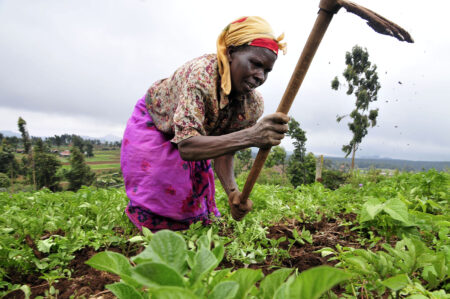The African continent is wealthy with vast mineral resources, which are 30% of the world’s total mineral reserves. Ninety percent of the world’s platinum and chromium reserves are found in Africa.

Sixty percent of the world’s arable land is located in Africa, which spells much potential for agriculture. Africa also boasts of many tourist attractions, including the majestic Victoria Falls, World Heritage Sites such as the Egyptian pyramids, as well as the numerous game reserves, to mention a few. This is in addition to the rich African culture as well as the diverse ethnic groups with over 1500 languages. It is the world’s second-largest and second most-populous continent.
Despite lying on a rich bed of resources, both natural and human, the narrative about Africa remains that of the poorest of the poor.

Changing the narrative
For a long time, the narrative of Africa as an impoverished continent has been repeated, such that it has now been ingrained in our minds. This narrative needs to change first to stop viewing Africa as a charity case and begin to see it as the potentially rich continent that it is. Only then can real action be taken to ensure progress by admitting Africa’s real problems and seeking solutions.
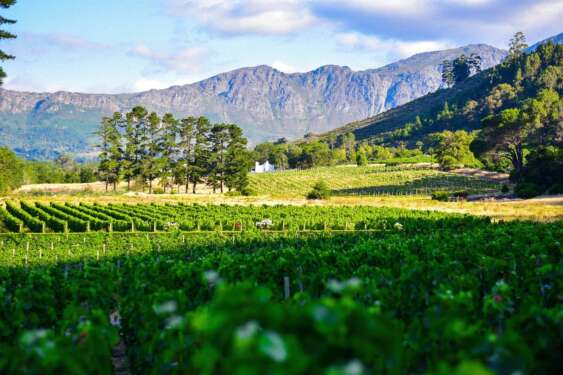
Scramble for Africa’s Natural Resources
- 10 Reasons Your Africa Is Not Poor Is Not What It Could Be
As a result, most countries with abundant mineral wealth, such as the DRC, experience a more flawed democracy due to civil unrest emanating from the mines leading to weaker economic growth and stunted development.
Private companies need to pay the appropriate taxes and ensure that the miners’ working conditions meet minimum health and safety standards. Furthermore, illegal logging, fishing, and wildlife trade are costing Africa close to US$30 billion per year.
Reliance on debt
Africa has developed a dependency syndrome for debt, aid, and donations. It needs to create policies that promote self-sustenance. Unfortunately, the debt problem in many countries of the African continent has reached high rates. The average debt ratio to GDP in sub-Saharan Africa increased from 51% to about 100% during 1982 and 1992. Countries like Zambia are already in the red. Therefore, it is necessary to develop an economic strategy for the African continent that makes it a fully sovereign area economically.
Ghana is losing 30% of its government revenue to debt repayments, paying loans which were often made speculatively, based on high commodity prices, and carrying whopping rates of interest. The cost of debt impedes economic development and leads to poor nations.
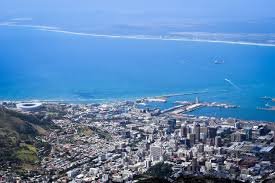
Also read: African Presidents exert pressure on loan waivers, debt relief
Failure to Utilise Its Resources
The Africans have failed to utilize their resources for their own benefit for various reasons. Some of them are self-made, while others are imposed on them through different factors. There is a lot of labor available in Africa to help in the exploitation of natural resources, and there is also a high potential to boost the power supply. In order to improve its economy, Africa must increase their power supply. However, despite having over 40% of the world’s potential water power, compared with about 10% in Europe and 13% in North America, less than 1% has been developed. This is one of the reasons why we have the paradox of poverty in the midst of plenty.
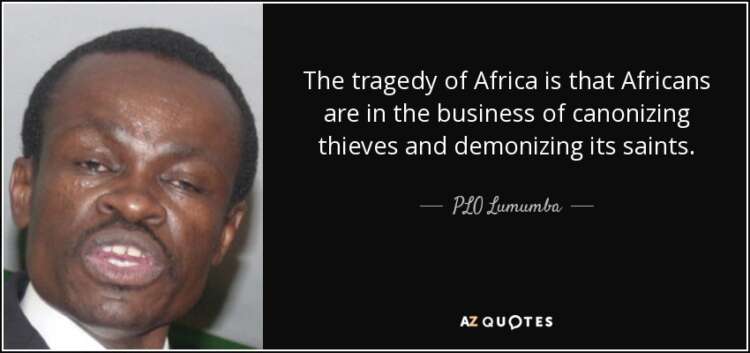
Mismanagement/Corruption
In an interview with the BBC’s Mark Doyle in 2009, Liberia’s President Ellen Johnson-Sirleaf said that “Africa is not poor, it is poorly managed.” A 2014 estimate suggests that rich Africans were holding a massive $500bn in tax havens. Africa’s people are being robbed of wealth by an economy that enables a tiny minority of Africans to get rich by allowing wealth to flow out of Africa.
To allow African countries to benefit from foreign investment, they must be allowed or assisted in legally regulating that investment and the corporations that often bring it. And the continent needs to rethink the current reliance on the extractives sector where raw commodity prices tend to fluctuate. This has contributed to the plight of Africa today.
A survey by Transparency International(TI) indicated that most African governments could not meet their citizen’s expectations due to rampant corruption. The respondents said that corruption in the region increased despite the campaigns and activism by civil society and the population. The police were identified as the most corrupt group across the region. Most corrupt individuals are politicians, who usually use their political muscle to dodge the law and avoid incarceration.
Unfortunately, at present, the political will and legislative framework to deal with corruption are lacking. Unless corruption is eradicated for good and the perpetrators are incarcerated, Africa’s wealth will continue to be embezzled by a few individuals.
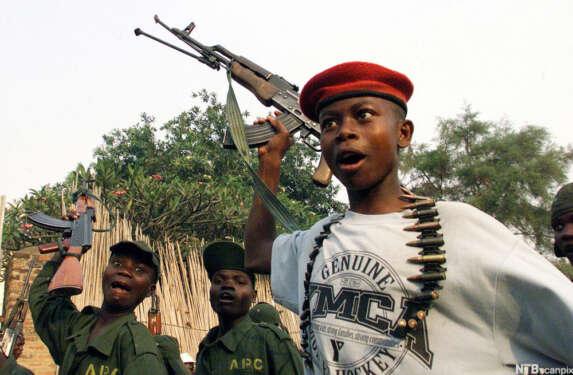
Civil Wars
Civil wars contribute to poverty because they disorient people and leave them destitute. They also destroy roads and communication networks, thereby disconnect businesses from their clients. Industries crumble, people lose jobs, and investors flee from the affected country leading to economic turmoil. In Nigeria, the Boko Haram insurgency has led to over 100,000 deaths since it started its brutal operation. Reports from the oil-producing country say that business activity in regions like Kano had dropped by 80% by 2015.
Read also: AU’s silencing guns initiative recipe for Africa’s development
Human resources development
Although some governments have prioritized the provision of basic education, many areas lack schools, and even where schools are, they are sparsely located and are hardly accessible to the younger children. Some households are also too poor to afford basic education for their children. This leads to inadequate skills and knowledge, which cripples the economy as there is no skilled labor to drive the nation.
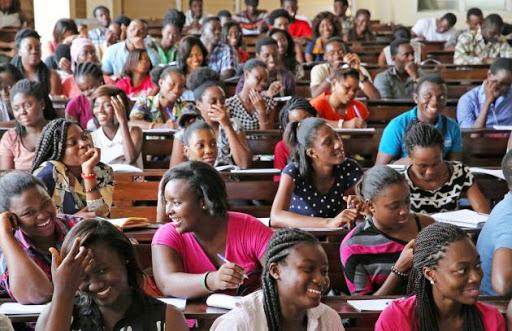
Image Source: UNESCO
Africa’s education system must also emphasize skills-based, technologically based, and globally competitive education. Few vocational or technical colleges teach practical skills, but more tertiary institutions produce graduates who will not be employable. Apart from the fact that the job market is already saturated, the skills taught in tertiary institutions are mostly not directly transferable to the work environment.
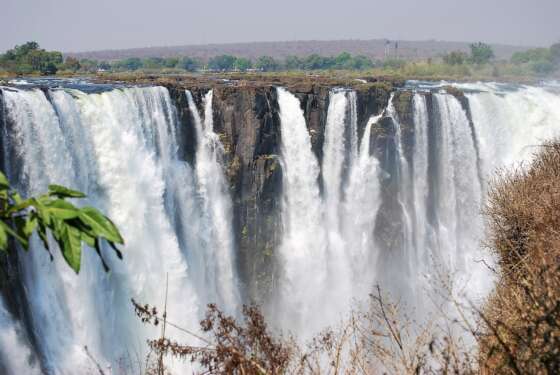
Africa can claim its glory
The Africa Continental Free Trade Area (AfCFTA) is one step in the right direction for Africa. It shows that there is hope for Africa to grow intra-African Trade to the levels we see in America or Europe. Introducing fair trade policies for African countries to trade with nations abroad will grow Africa’s economy much faster than aid would.
Africa can be prosperous if it emphasizes shunning corruption, providing basic amenities such as water, food, shelter, energy, education, and security, including making policies that promote trade and shun aid dependency. To echo the words of Madam Johnson-Sirleaf, Africa is not poor; it is poorly managed.
Also, Read: Africa’s Economic Prospects Post-COVID-19











